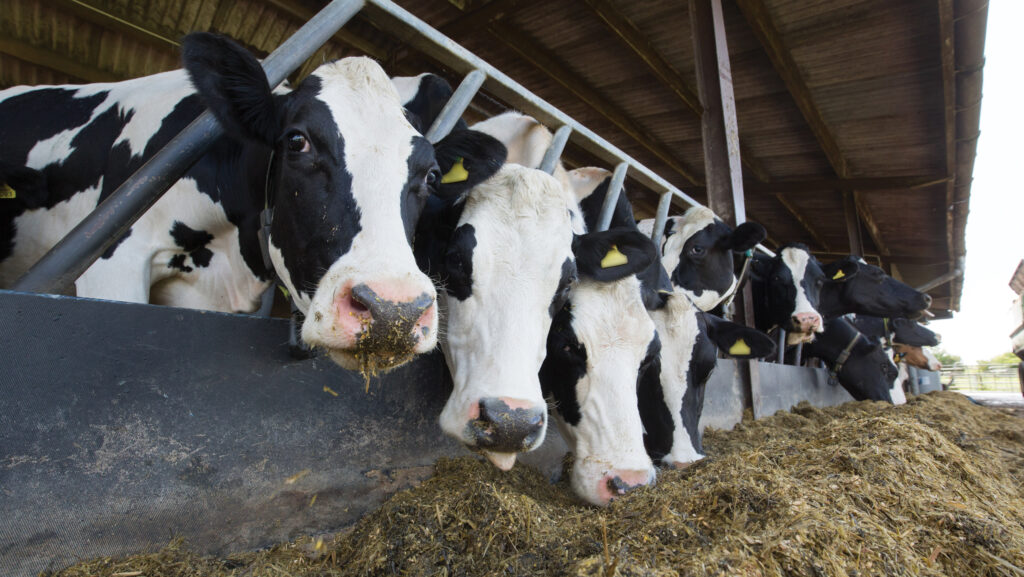Cattle botulism cases linked to contaminated feed
 © Tim Scrivener
© Tim Scrivener Cases of botulism in a herd of cattle are being investigated by the Food Standards Agency (FSA) and the Animal and Plant Health Agency (Apha) after hundreds of cows are reported to have died and been culled.
The outbreaks in Essex, Northamptonshire and Shropshire are believed to be linked to contaminated animal feed, which has been withdrawn from sale.
Testing is under way to confirm the strains of botulism that are causing illness in cattle.
See also: Botulism most likely cause of 100 Jersey cows deaths
The results will be known in the coming days.
Working with government and industry partners, the FSA says it is helping to ensure that any animals showing signs of botulism do not enter the food chain, and any contaminated feed is destroyed and not fed to livestock.
Botulism is a paralysing disease which kills most affected animals.
It is caused by a highly lethal toxin, produced by Clostridium botulinum, a bacterium found in soil, which multiplies in rotting vegetation or carcasses.
There is no indication of any immediate risk to human health, but Farmers Weekly understands that safeguarding measures have been implemented.
“Apha’s regional laboratories are involved with on-farm and laboratory investigations into cattle deaths that appear to be linked to the suspected feed contamination.
Further information will be provided in due course,” an Apha spokesperson said.
Jodie Wild, head of the incidents unit at the FSA, added:
“We are taking action to safeguard the food and animal feed supply chain and taking precautionary action to protect both public and animal health and welfare.”
The Agricultural Industries Confederation, which represents farm suppliers, says it has notified its members, and all recipients of potentially contaminated feed have been contacted by their supplier.
“The business is working closely with the relevant authorities to ensure that all potentially affected feed has been isolated and to help establish the root cause of the issue,” it said in a statement.
“At this stage, investigations are ongoing, and no definitive cause has been confirmed.”
Clinical signs
Clinical signs vary from sudden deaths, to animals becoming stiff, wobbly, and going down before dying.
Some animals slowly become weaker, developing flaccid paralysis, and are unable to eat or drink, necessitating euthanasia on welfare grounds.
Very few animals survive once they develop the disease.
The onset of clinical signs is variable and can be within 24 hours of exposure, but can be delayed by up to three weeks, with the majority affected within the first seven days.
For cattle diseases such as suspected botulism, the private vet can contact the Apha surveillance pathology network to discuss a case with a veterinary investigation officer, or to arrange submission of material for investigation.
